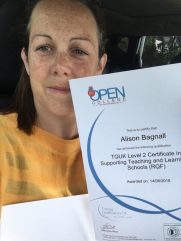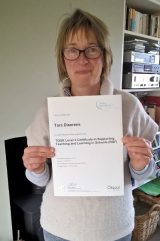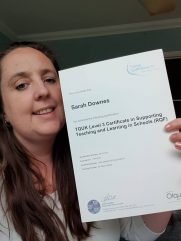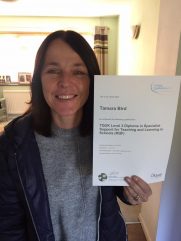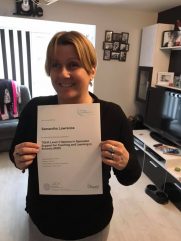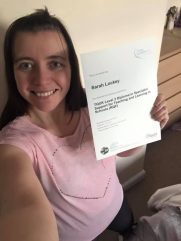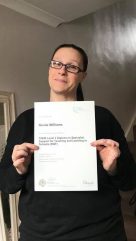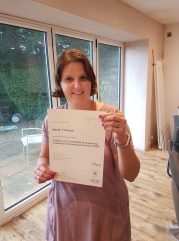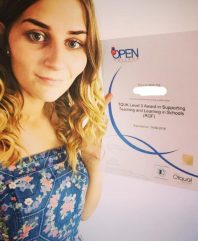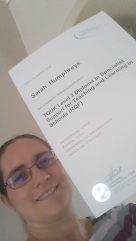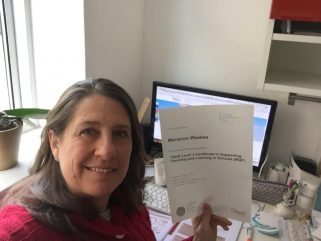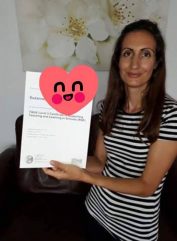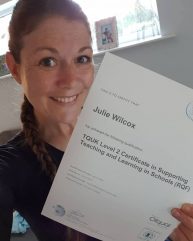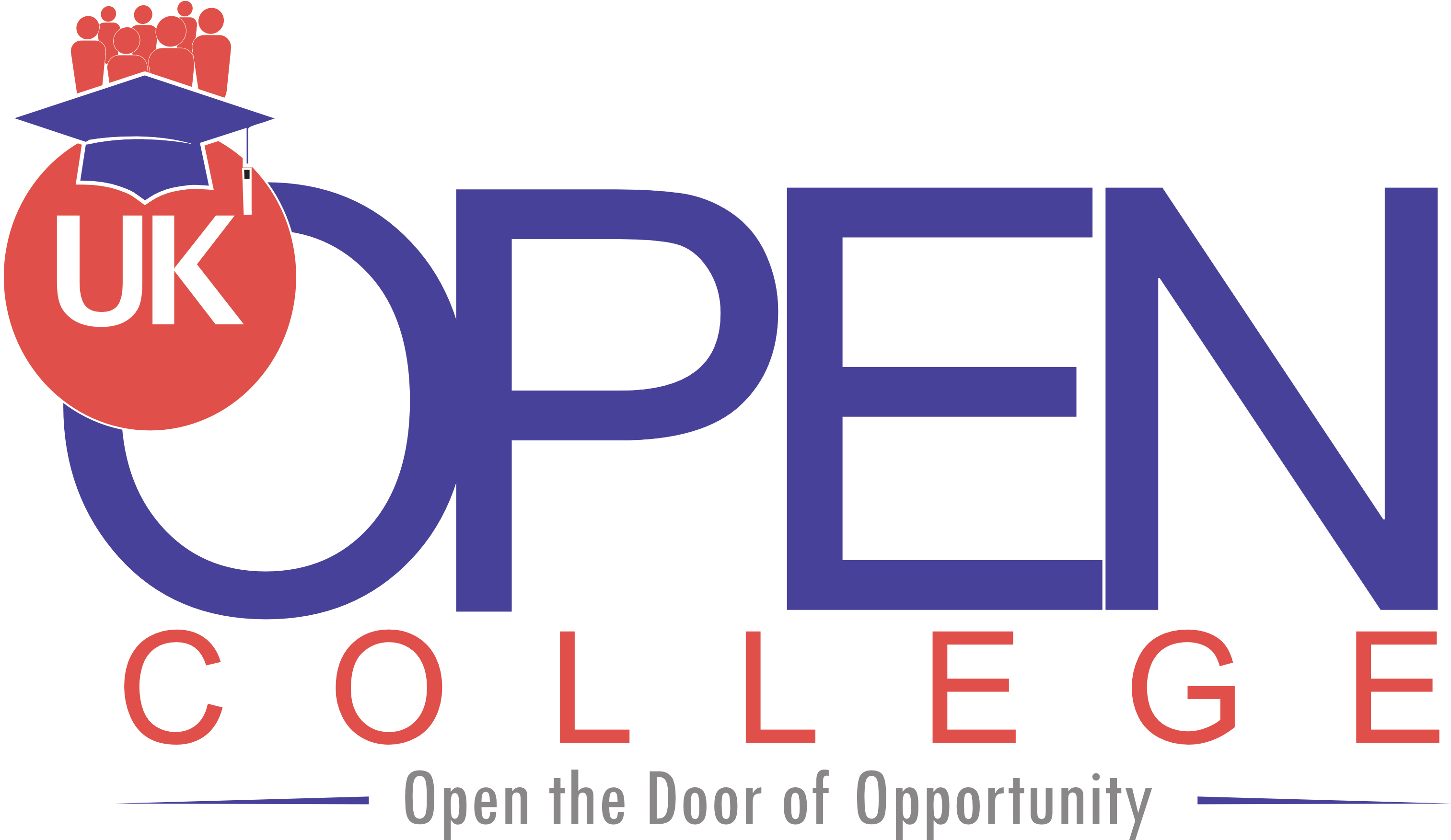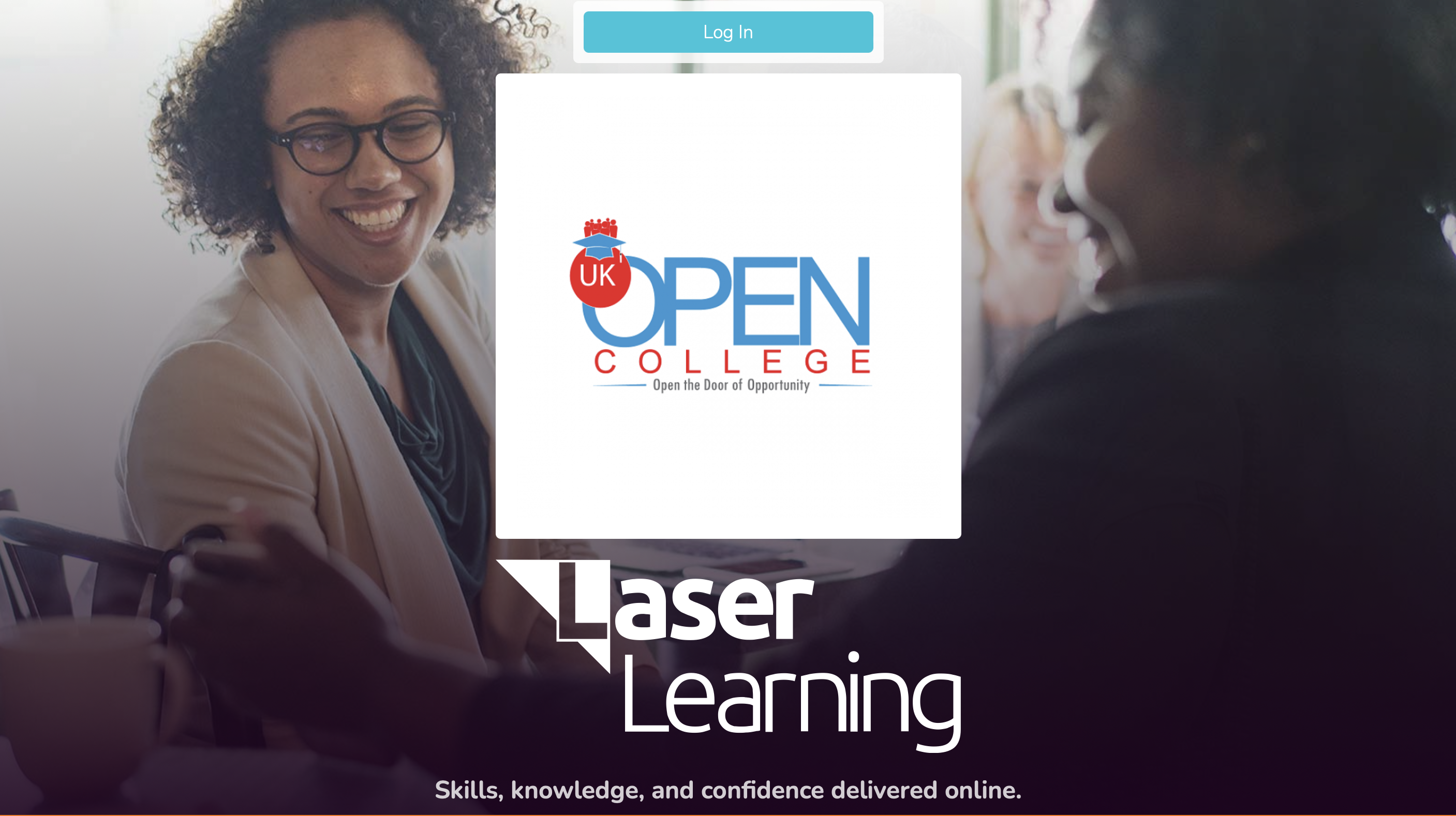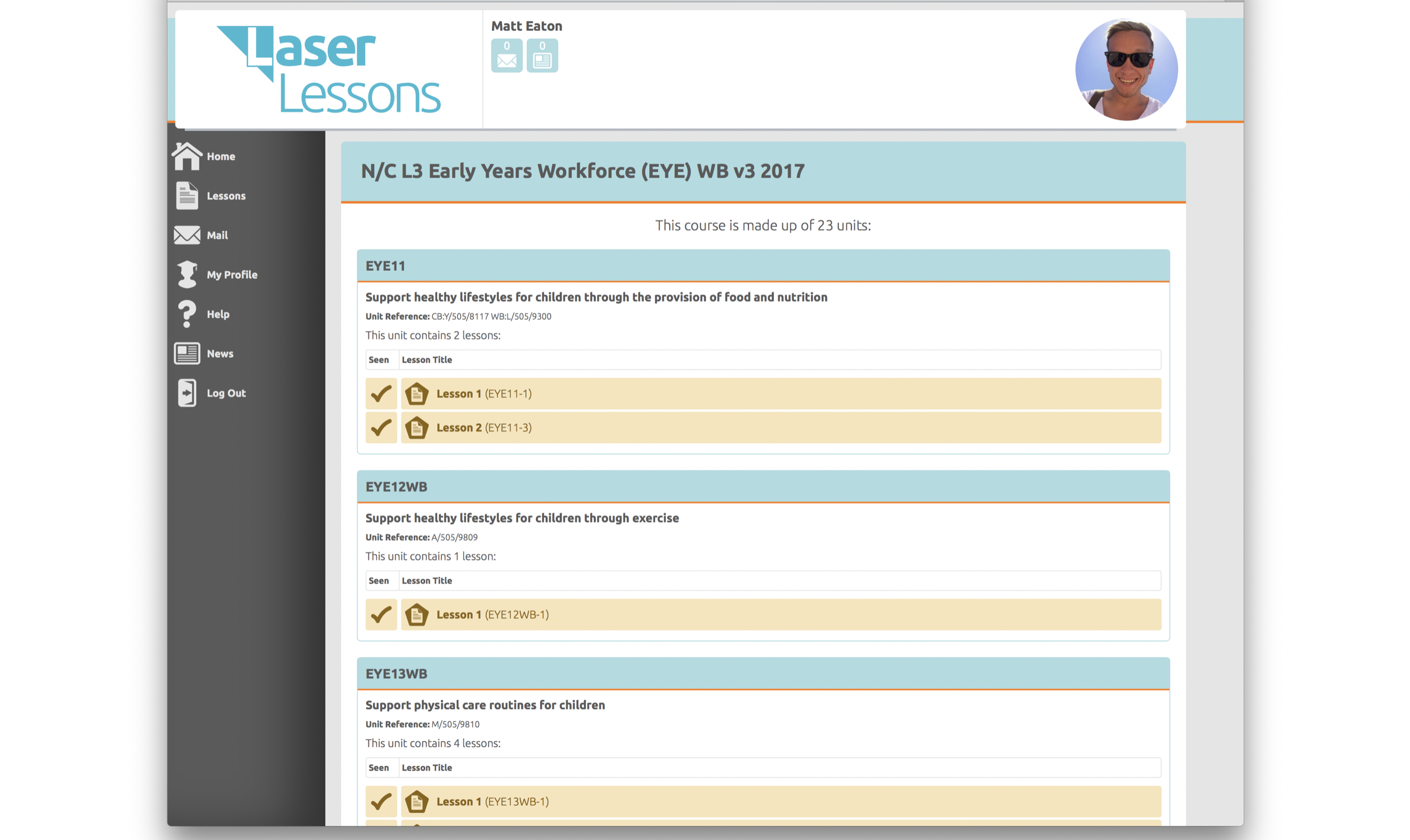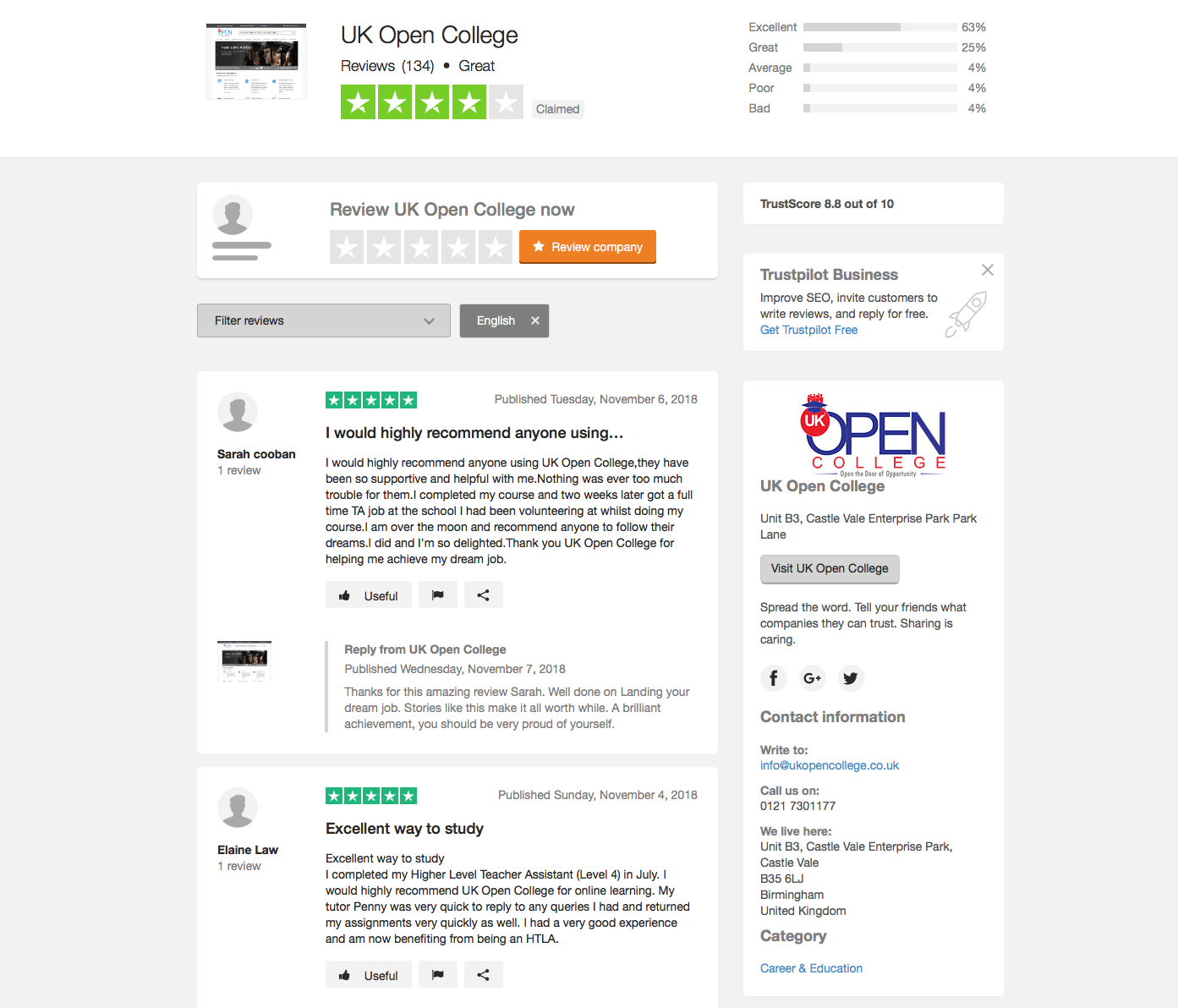TQUK Early Years Level 3 Diploma – Children’s Workforce (Early Years Educator) – RQF
Online Early Years Educator Level 3 Diploma Childcare Course. The Children's Workforce (Early Years Educator) is the direct replacement for the old Level 3 NVQ course. Aimed at learners looking to, or currently working with children from birth to 5 years, and also gain knowledge of children 5-7 years old in a variety of settings including pre-school, nursery and reception year teaching assistant.
The early years diploma course prepares learners for employment as Early Years Educators. This course is also ideal for learners that have already completed the Level 2 Diploma for the Children & Young Peoples Workforce or those with existing experience of working with children. This early years diploma course also provides an opportunity to those looking for confirmation of competence in working towards early years status (GCSE/LV2 English gradesA+-C is required to gain Status).
Land your dream job in Early Years once qualified.
Please note: This is the only LV3 qualification that fulfils the staff to child ratios, that is accepted by Ofsted
This is the only course that will fully qualify you as an LV3 Early Years Educator.
(GCSE/LV2 English) is required to fulfil the role as an Early Years Educator along with a Paediatric First Aid Certificate. This is not required to take the course but will be required for employment purposes.
Qualification: TQUK Children's Workforce Level 3 Diploma (Early Years Educator)
Duration: 18 Month's to complete but complete to suit during this time.
Start Date: Anytime - We enrol 365 days a year
RQF Accredited: Fully recognised and accepted by Ofsted
Placement: A minimum of 7-9 hours per week is required in a nursery/preschool setting.
Ofsted Accepted: Yes
UCAS Points: 32
For those learners with no experience of working with children or understanding of the EYFS, we strongly advise you to take the LV2 Diploma Early Years Practitioner course first of all.
Require a Company or School Invoice? You can request an invoice here.
Course Details
Course Syllabus
Course Syllabus
Learners will complete 17 units of study in total as listed below.
17 tutor marked assignment to complete
Understand child development
Understand range of underpinning theories and philosophical approaches to how children learn and develop
Understand the expected patterns of of children’s development
Understand how a child’s learning and development can be impacted by the stage of development and individual circumstances
Be able to identify the needs, interests and stages of development of individual children
Understand how to support and promote children’s speech, language and communication.
Support the holistic development of children
Understand the importance of holistic development of children in early years settings
Be able to plan opportunities for the holistic development of children
Be able to implement opportunities for the holistic development of children
Be able to reflect on own practice in relation to promoting the holistic development of children
Safeguarding and child protection in early years
Understand legislation, guidelines, policies and procedures for safeguarding within the early years setting
Understand roles and responsibilities for safeguarding within the early years setting
Understand how to respond to evidence and concerns of abuse or harm
Understand the importance of record keeping relating to safeguarding issues in the early years setting
Promote the health, safety and welfare of young children
Understand the legal requirements and guidance for health and safety within an early years setting
Be able to carry out risk assessment and risk management in line with policies and procedures
Understand how to respond to accidents, incidents and emergency situations in the early years setting
Be able to maintain records and reports to legal requirements within an early years setting.
Support the health, wellbeing and physical care needs of children in early years settings
Understand why health and wellbeing is important for children
Understand common childhood illnesses
Be able to plan and carry out physical care routines for children in the early years setting
Be able to plan and implement activities to promote healthy lifestyles
Be able to follow hygienic practices to minimise the spread of infection
Equality, diversity and inclusion in early years settings
Understand the rights of children
Understand the importance of diversity, equality and inclusion
Understand how to promote diversity, equality and inclusion
Be able to work in an inclusive way
Support positive behaviour in children
Understand the different strategies for supporting development of positive behaviour in young children
Be able to support children to understand their own behaviour
Be able to promote positive behaviour expected of young children
Be able to support children to achieve behaviour goals and adhere to agreed boundaries
Support children with additional support needs
Understand when children are in need of additional support
Be able to identify additional support needs
Understand the role of early intervention in supporting children with additional support neeeds
Be able to plan and implement activities to meet additonal support needs
Be able to evaluate the effectiveness of support mechanisms
Support attachment when working with children in early years settings
Understand the theories of attachment
Understand the significance of attachment on child development
Be able to plan and promote attachment within an early years setting
Support children through transitions
Understand different types of transitions and significent events children may experience
Understand the potential effects of transitions and significant events on children
Be able to prepare children for transitions and significant events
Be able to support children experiencing transitions and significiant events
Plan, lead and evaluate purposeful play activities to support children learning and development
Understand areas of learning and development in the current early education framework
Understand the importance of play for the development of children
Understand the need for differentiation when providing playful learning opportunities for children
Be able to plan and lead play and learning and development opportunities in line with the current early education framework
Be able to evaluate the effectiveness of the play and learning and development opportunities used
Support the development of reading, literacy and mathematical skills in early years settings
Understand systematic synthetic phonics in the teaching of reading
Be able to plan and deliver activities using systematic synthetic phonics to develop reading skills
Understand strategies for developing early literacy and mathematics
Be able to plan and deliver activities to develop early literacy and mathematics.
Be able to reflect on own practice in relation to develop reading, literacy and mathematics in young children.
Extending children’s learning and thinking in early years settings
Understand strategies to extend children’s learning and thinking
Be able to plan and implement strategies to extend children’s learning and thinking
Be able to reflect on own practice to develop and extend children’s learning and thinking
Assessment and observation in early years settings
Understand the current early education framework
Understand assessment techniques in early education
Understand the importance of record keeping in completing observation and assessment.
Be able to carry out observations and assessments in own setting in line with current frameworks
Be able to work with key people to plan next stages of learning and development
Recording, storing, reporting and sharing information in early years settings
Understand the policies and procedures for recording, storing, reporting and sharing information in an early years setting
Be able to maintain accurate and coherent records and reports in line with policies and procedures
Working in partnership with colleagues, professionals and key individuals in early years settings
Understand the principles of partnership working in relation to current framweworks
Understand roles and responsibilities of colleagues and other professionals when working in partnerships
Be able to work cooperatively with colleagues and other professionals
Understand the role of parents and/or carers in a child’s development
Be able to encourage and work with parents and/or carers in an early years setting
Continuing professional development in early years education
Understand the scope of own work role while supporting children in early years
Understand the importance of reflective practice and continuing professional development
Be able to assess and plan for own continuing professional development
Be able to evaluate continuing professional development activity.
Entry Requirements
Entry Requirements
Students looking to enrol onto this course should meet the following criteria:
It is strongly advised that learners hold a LV2 Diploma in Early Years or have previous experience working with children ( 2 years experience recommended) and a full understanding of the EYFS prior to enrolment.
Have a confirmed placement voluntary or employed in a nursery/preschool in mainland England for duration of the whole course until completion (Approx 350 hours overall) – 12 months on average. Due to assessment requirements, if you are located outside of the UK, please contact us before you enrol.
Minimum 7-9 hours per week
Be aged 16 Years or above
Possess a solid knowledge of the english language
Have access to a PC and the internet for the duration of the whole course
Basic computer skills: e.g Word processing, emailing, uploading documents etc
Have a genuine desire to succeed
Course Duration
Course Duration
Online course access and tutor support are provided for 18 months, all included in the fee. Complete to suit within this time frame.
Guided Learning Hours (GLH) – 367 Hours
Total Qualification Time (TQT) – 620 Hours
On average, learners will complete this course within 12 months.
Assessment & Direct Observation
Assessment & Direct Observation
Learners will be required to complete a series of tutor marked assignments ( normally 1 after each unit) as they progress through this course. Each assignment will contain a variety of practical task and essay type questions. These assignments are assessed by your tutor to monitor progress. These assignments along with practical evidence uploaded to your learning portal create an ongoing portfolio. You will be provided with constructive feedback to help you in completing each unit to the required standard.
The main pieces of evidence for the portfolio could include some or all of the following:
Assessor observation (We come to you)
Witness testimony by a suitably qualified individual in your setting.
Learner product
Worksheets
Assignments/projects/reports
Record of oral and written questioning
Learner and peer reports
Recognition of prior learning (RPL)
All students on this course are required to nominate an expert witness from the placement setting. Your expert witness must be one of the following.
Be a qualified teacher with QTS status
Be a qualified assessor and hold an A1/D32 or CAVA qualification
Be qualified to a minimum of NVQ/Diploma LV3 in Early Years/Childcare with a minimum of 2 years in practice.
Important: You will be required to provide a copy of the qualification held by your expert witness as part of the enrolment process. .
The use of an Expert Witness (EW) will be determined and agreed by the college assessor and final assessment decisions must be made by the qualified assessor here at UK Open College.
Study Method - The Laser
Study Method - The Laser
Learners are able to access their course lessons via our LASER online learning platform. Access your lessons, complete your assignments and contact your tutor all in one convenient place.
As long as you have an internet connection you can access your course 24/7. You are able to access our online platform on the following link Laser Online Learning Platform
Each course on the laser follows our unique Laser Lessons formula, and consists of:
- A filmed tutorial with a professional presenter and accompanying text for those with hearing difficulties
- Selected reading available in PDF format and also from trusted websites
- A presentation to give further explanation of a specific topic
- Good practice example videos, including videos scripted by Laser Systems for Canal Wharf Studios to cover specific criteria
- An interactive quiz to test knowledge gained
- Evidence opportunities which allow the learner to produce work towards their course
- Extended learning materials for those who want to develop their skills and knowledge even further
A think and challenge activity which asks the learner to put the knowledge they have gained towards a real-life scenario
See an example of one of our good practice video’s available below on the Laser.
Course Induction - Zoom
Course Induction - Zoom
As part of the enrolment process for this course, all leaners are required to attend a course induction with one of our friendly assessors. These are normally carried out within 7 days of receiving course access. Inductions are carried out using Zoom and are compulsory for all students registered on this course. You are able to download Zoom totally free of charge here Zoom Induction
This is a great way of meeting one of our assessors who will introduce you to the functions of our learning platform The Laser and answer any questions you may have before progressing. Inductions are provided on a regular basis at times to suit all.
Tutors & Support
Tutors & Support
All learners have access to a qualified tutor via email for the stated support period. In addition to this you are able to speak to our support team via telephone with any query you may have relating to your course.
Our tutors and support team have years of experience in delivering online and distance learning courses. If you require help, then we are only a phone call away.
Optional Extras
Optional Extras
This course comes with an optional extra
1-1 tutor sessions:
For a £30.00 fee, all learners on this course have the option to arrange a 1-1 zoom meeting with their tutor. Here you will have your tutors undivided attention to ask anything you want for a maximum of 30 minutes per session. All we ask is that you let your tutor know in advance what you would like to discuss so they can prepare. This allows you to get the maximum from your session.
All sessions can be booked with your tutor at a mutual time to suit.
Qualification Awarded
Qualification Awarded
Level 3 Diploma – Children’s Workforce – Early Years Eduator (RQF)
Qualification ref: 601/7670/2
Credit value: 62
UCAS Points: 32
This course provides successful students with a fully recognised qualification from TQUK, listed on the RQF (Regulated Qualifications Framework). TQUK is recognised as an awarding organisation by the qualification regulators for England and Northern Ireland, who are: the office of the qualifications and examinations regulator (OFQUAL) in England and the council for curriculum, examinations and assessment (CCA) in Northern Ireland.
Payments plans - Guaranteed acceptance for UK students only!
Payments plans - Guaranteed acceptance for UK students only!
Select whether to pay in full upon enrolment or opt to pay a deposit and spread the cost with our Interest free payment plan. *Guaranteed acceptance for those who meet the following conditions:
Example: Based on a Max finance agreement of £600
Aged 21 and above (Maximum age 75)
Employed or self employed with a minimum income of £7,200 PA (£600.00 PCM take home pay)
Permanent resident in the UK for a min of 3 years
Be able to provide 3 years of address history from the UK
Have a UK bank account that accepts direct debits
Hold a valid UK credit or debit card
You are not bankrupt or in an IVA.
Under 21 – We will require a willing parent, guardian or family member to take out the finance for your studies on your behalf.
Please note: We do not carry out credit checks if you meet the above criteria. You may be asked for evidence of income.
Alternative payment plans may be available for those that do not meet these conditons. Please speak to a member of our team who will be happy to assist on 0121 792 3872.
Applicants choosing the monthly option will be required to complete and sign a financial agreement for the remaining payments. All payments to be set up via direct debit. We are only able to set up monthly payments for students resident in the UK.
Please note: Once a payment plan is set up, you are liable to pay the course fees in full whether you complete the course or not. Please ensure the monthly repayments are affordable before agreeing to any payment plan offered.
Why UK Open College?
Why UK Open College?
| ✅ Enrol online today – No set term times |
| ✅ Accredited College – We are fully approved |
| ✅ Spread the cost – interest free finance (Guaranteed acceptance*) |
| ✅ NUS/Totum Student Card Approved* |
| ✅ Trading since 2006 – We will not let you down |
| ✅ Flexible learning – Study at a time that suits you |
| ✅ Qualified Tutors – Fast assignment turnaround |
*NUS/TOTUM Student cards are only available to students who are studying a fully recognised RQF/QCF course of 120 study hours or more. £14.99 fee per year applies.
Trustpilot - Read what our students think !
Trustpilot - Read what our students think !
We are rated Excellent on Trustpilot. Read what our learners are saying about their learning experience with UK Open College. 100% genuine comments left by students that have actually completed their studies. Trustpilot is the largest independent website for customer reviews in the UK.
14 Day Money Back Guarantee
14 Day Money Back Guarantee
Once log in has been issued or your study pack received at the requested delivery address, you have 14 days to ensure this course meets your needs and requirements. If you are not happy for any reason at all, simply email our accounts department with your request to cancel on [email protected]. We will offer a full refund. No questions asked !
Please note: Any request to cancel outside the 14 days cancellation period will be declined. We will not refund you under any circumstances outside of the legal 14 day cooling off period. If you have agreed student finance and opted to pay monthly, you are legally obliged to pay the balance of your fees once the 14 day period expires.
Our full T’s & C’s can be viewed here.

